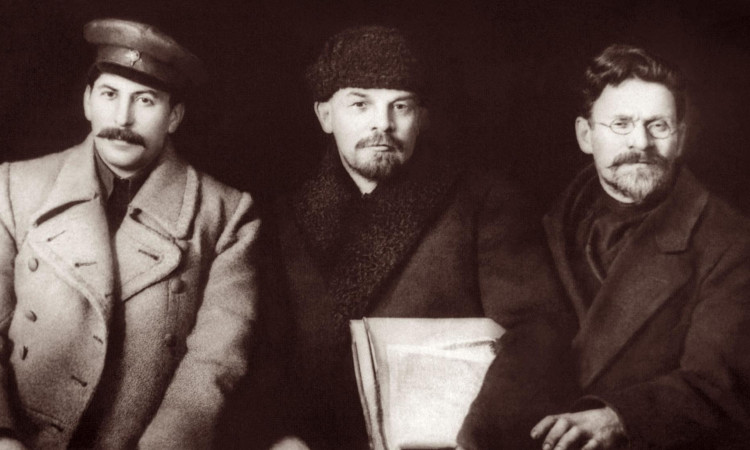The following motion was passed unanimously at the party’s eighth congress in September.
This congress notes that it was the unstoppable combination of Bolshevik organisation and Marxist-Leninist theory that enabled the workers and peasants of Russia to unite in effective action that defeated first tsarism and feudalism, then Russian capitalist imperialism, and finally the combined forces of European imperialist intervention.
Congress further notes that the workers’ heroic feats did not stop there. Under the scientific leadership of the Bolsheviks, the masses in the new Soviet republic were mobilised not only to destroy the old, capitalist forces of production and state control, but also to build the world’s first socialist state.
Congress notes that this application of Marxism Leninism in practice is what led to the colossal achievements of the Soviet Union during the period of socialist construction, and that workers not only in the Soviet Union but all over the world have felt the ramifications of those achievements every day since October 1917.
Congress notes that with this achievement, the socialist genie is well and truly out of the bottle. Capitalism might linger on, but it is living on borrowed time.
Congress further notes that, after October 1917, the imperialists lost the moral high ground. When Soviet policy proved in practice the fallacy of bourgeois justifications for racism and national oppression (that colonised peoples were unfit to rule themselves) and for sexism (that women were physically and mentally incapable of doing ‘men’s work’), the popular sentiment turned against imperialism for good.
This congress believes that the fact that modern-day imperialists are forced to pay lip-service to ‘equality’ and ‘human rights’; that their colonial wars have to be fought under such slogans as ‘anti-terrorism’ or ‘pro-democracy’ are a telling legacy of October.
Congress further believes that, as a result of October, workers will no longer accept the openly-expressed imperial ambitions of the nineteenth century. No longer will oppressed peoples suffer their fate in silence, accepting the propaganda that their European overlords are somehow ordained by God to rule over them.
Congress believes that while the imperialists may continue to fight wars for domination and plunder, they have to hide their real motivations for doing so, and their wars are almost never successful in the long run. Since October, there is no people to be found who will accept colonial rule. From Korea to Palestine, from Vietnam to Angola and Syria, the history of the last century is littered with evidence of the determined resistance of oppressed peoples to imperialism’s best-laid plans.
Congress notes that, as fighters for socialism, the most important legacy that the October revolution has left for us is Leninism, which was profoundly defined by Josef Stalin as “Marxism of the era of imperialism and the proletarian revolution. To be more exact, Leninism is the theory and tactics of the proletarian revolution in general, the theory and tactics of the dictatorship of the proletariat in particular.” (Foundations of Leninism, 1924)
This congress therefore resolves to dedicate its proceedings to the brave men and women workers, soldiers and peasants who fought in the Great October Socialist Revolution of 1917, to the members of the Communist Party of the Soviet Union (Bolsheviks), who organised the masses to make their struggle effective, and most of all to the leadership of that party, headed by the great Vladimir Ilyich Lenin, whose profound theoretical insights enabled the oppressed masses of the Russian empire to clearly understand their enemies.
Congress resolves to continue on the path we have charted thus far: to pick up and cherish the powerful weapon of Marxism Leninism and become ever more effective in using it.
Congress further resolves to continue to do everything in our power to defend the gains of Soviet socialist construction, the correctness of Marxist-Leninist theory and tactics, and the leadership of the Bolsheviks under Lenin and Stalin.
Congress resolves to popularise an understanding of the achievements of socialism amongst the working class. Only by understanding what the working class is capable of – that workers can rule without exploiters; that socialism can offer the civilised and secure life to which they aspire – will its members gain the confidence to join wholeheartedly with the struggle for socialism.
This congress, inspired by the earth-shaking achievements of the Soviet Union, by the leadership of the Bolshevik party, and by the unparalleled contributions of Vladimir Lenin and Josef Stalin, the architects of socialism, resolves to continue to work unceasingly to bring proletarian dictatorship – rule by the working people – to Britain.
Long live the October Revolution; the future belongs to communism!














